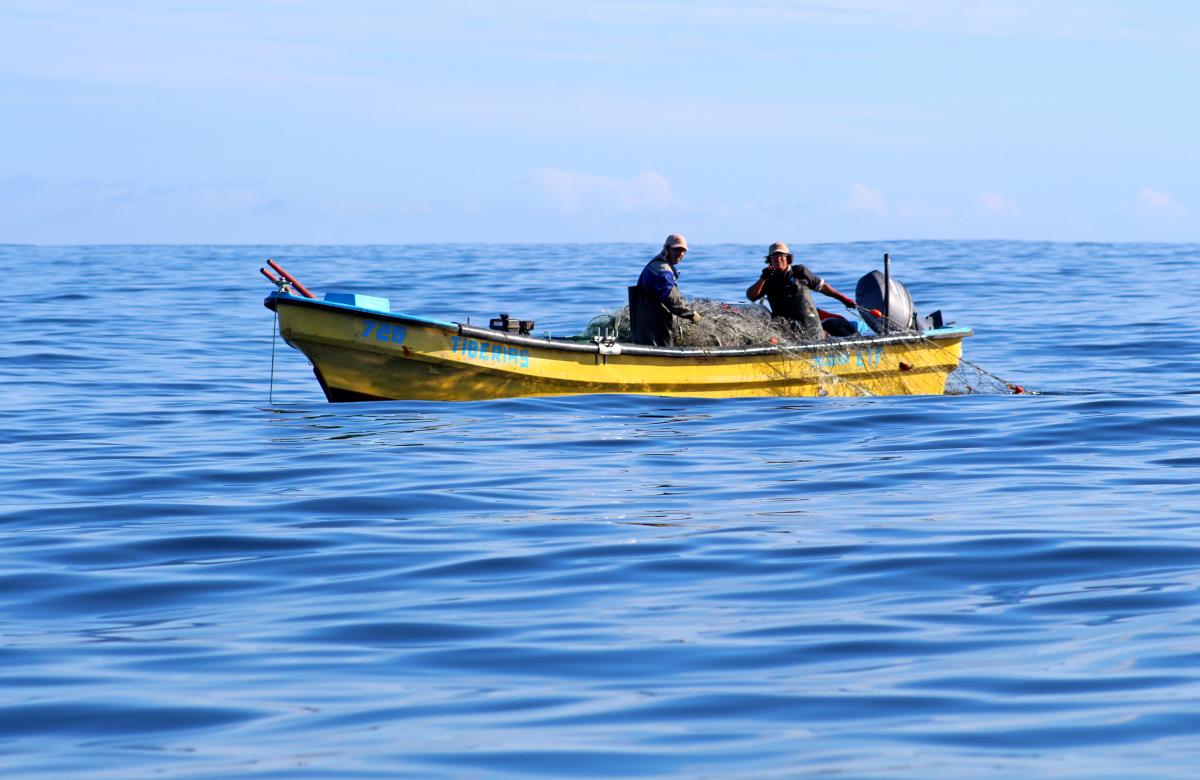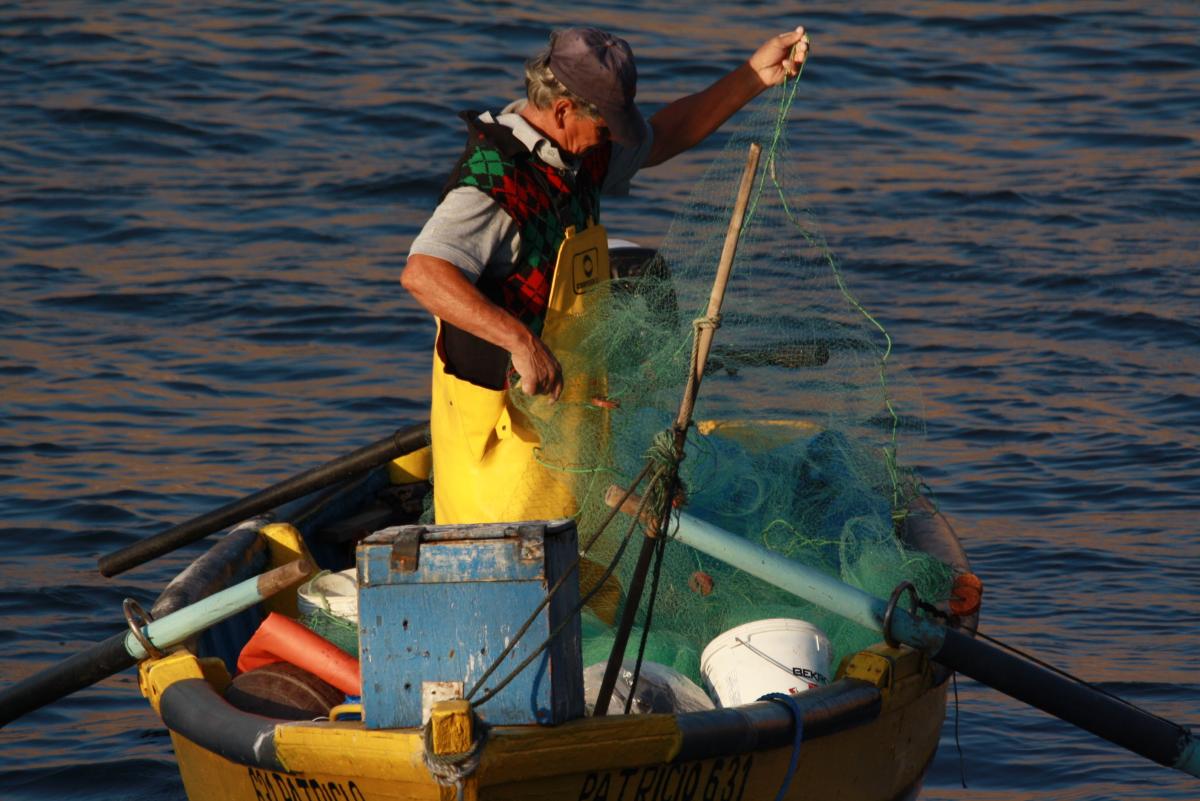When the FisheryProgress Human Rights and Social Responsibility Policy took effect in 2021, two fishery improvement projects in Southern Chile – the Chilean stone crab FIP and Patagonian red octopus FIP – found themselves struggling to meet the requirements laid out before them, notably the grievance mechanism requirement. These small artisanal fisheries didn’t have the resources or expertise needed to meaningfully implement them, and soon were required to render their profiles inactive, ending their ability to share their improvement progress with buyers and other stakeholders critical to their projects. Nevertheless, their inactivity triggered innovation on how to meet the grievance mechanism requirement effectively, leading to a new resource aimed at ensuring workplace abuses can be identified and addressed for thousands of Chilean fishers.
After noticing that the FIPs had gone inactive in 2021, end buyers from around the world worked with Chilean NGO Pesca Sustentable to convene a team of processors, exporters, and other active FIP participants. Their mission: get the Chilean stone crab and Patagonian red octopus FIPs on track to active improvement.

Pesca Sustentable works with fisheries in Chile to improve environmental and social performance, while conserving marine biodiversity and ensuring market access for the many artisanal fleets they represent. The stone crab and octopus FIPs are highly valuable export fisheries, and Pesca Sustentable knew there had to be solutions to help them.
“At first, the HRSR Policy wasn’t widely understood,” said Gonzalo Araya, Market Liaison Director at Pesca Sustentable. “We weren’t sure how our fisheries could fit the mold until we took another look at things that are social norms within this industry.”
Araya and his team pointed out these various norms, identifying where they fall into the HRSR Policy. Verbal abuse, for example, is pretty commonplace, viewed as just another aspect of working as a fisher. Taking action against it could result in exclusion from future fishing trips, jeopardizing a fisher’s livelihood. With no protection systems in place, workers usually stay silent and bear the brunt of the harm. Araya noticed a great opportunity to enact grievance mechanisms that would both meet the HRSR Policy and increase workplace satisfaction.
“In high risk work environments like certain types of fishing, there can be a real need to act swiftly and ensure everyone’s alertness. This can often give way, however, to workplace cultures where yelling and hurling insults is commonplace,” said Jamie Padilla, Human Rights Transparency Manager at FishChoice. “Often, there’s a sense that this is necessary—nobody’s seen it done any other way. What we’ve seen though is that when these practices shift through training and improved management systems, it can lead to faster and more robust improvements on many fronts—safety, quality, productivity, food safety.”
At 4,000 miles long, Chile’s coast is remarkably expansive for a country that averages 100 miles wide. This stretching coastline means ample resources from the sea, and that means an extensive network of fisheries operating all the way from the arid north to the subpolar south. Fortunately, cellular connection is fairly robust along the coastline, many fishers have smartphones, and they regularly use WhatsApp to communicate with each other. This is extremely valuable to fishers, who are organized as independent fisher unions. Because of this, their workplace dynamics are largely unregulated by formal supervisory units, leaving the workers unprotected.

Araya saw a unique opportunity to use WhatsApp to address human rights concerns. He worked with an in-country programming firm to create a chatbot that links directly to a fisher’s WhatsApp account, taking advantage of the already-popular communication platform to empower workers. With the chatbot, users can file complaints and other grievances, and will be directed to the best information or resource suited for the need, whether that’s a government agency, institution, or online system. In the case of emergencies, notices are immediately sent to the police or other respective authority. All messages, regardless of their nature, are responded to in a timely manner.
Simple, effective, and user friendly, the chatbot is a novel approach to reducing the risk of human rights abuses and meeting requirements of the HRSR Policy. Plus, it’s proven to be the cheaper solution out of the other options Pesca Sustentable looked into. The chatbot will be crucial for getting the stone crab and Patagonian red octopus FIPs back to active status, and will support three new FIPs that Pesca Sustentable hopes to soon publish on FisheryProgress for squid, king crab, and northern octopus fisheries.
“My hope is that this could start to make these commonplace norms visible, and lead to work with fishers to show that abusive behavior is not healthy or acceptable,” said Araya. “The goal is to better the work lives of these fishers while meeting the HRSR Policy requirements needed to resume active work in these FIPs.”
This chatbot will be compatible with any of the numerous FIPs Pesca Sustentable works with, and will first launch for beta testing next month with the Patagonian red octopus FIP. Araya and his team will be monitoring the app and collecting crucial data the first two years of operation, noting any program fixes or user interface changes that will be made in a 2.0 version of the bot.